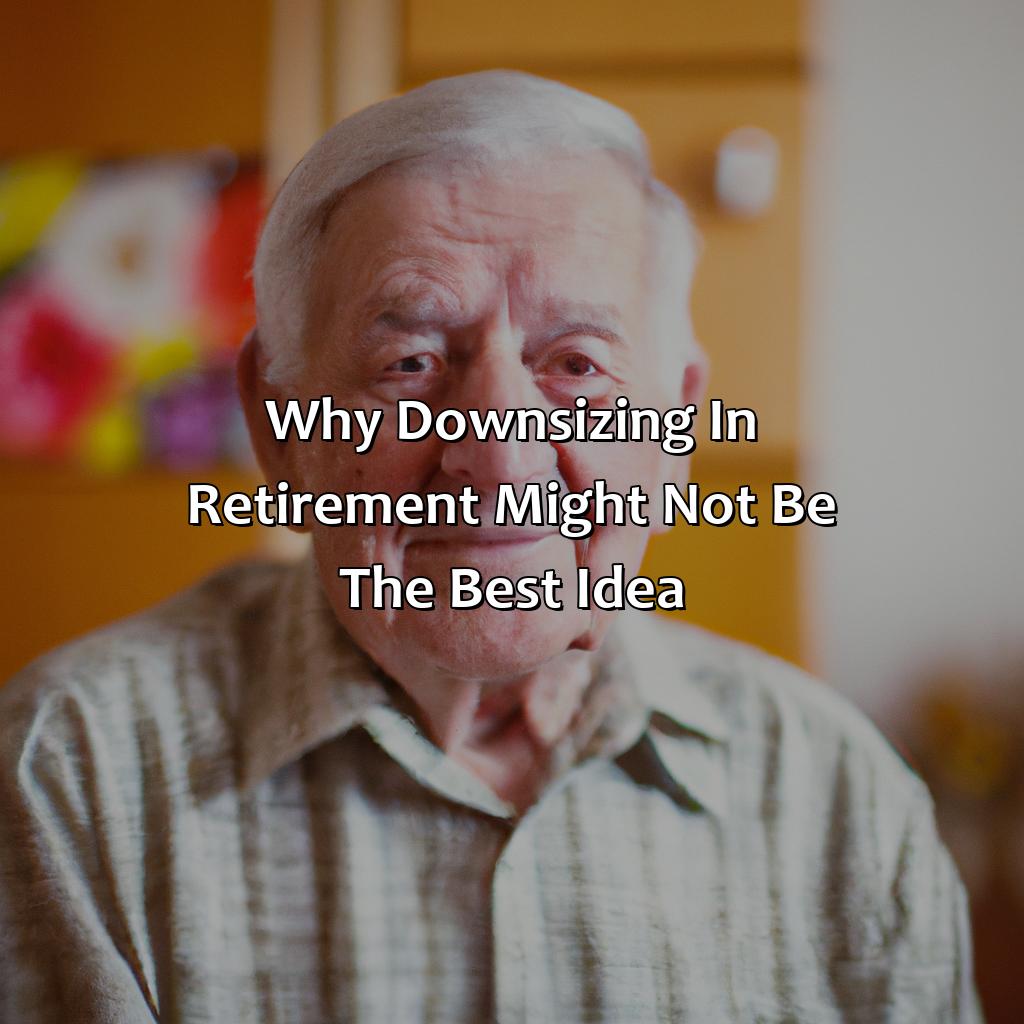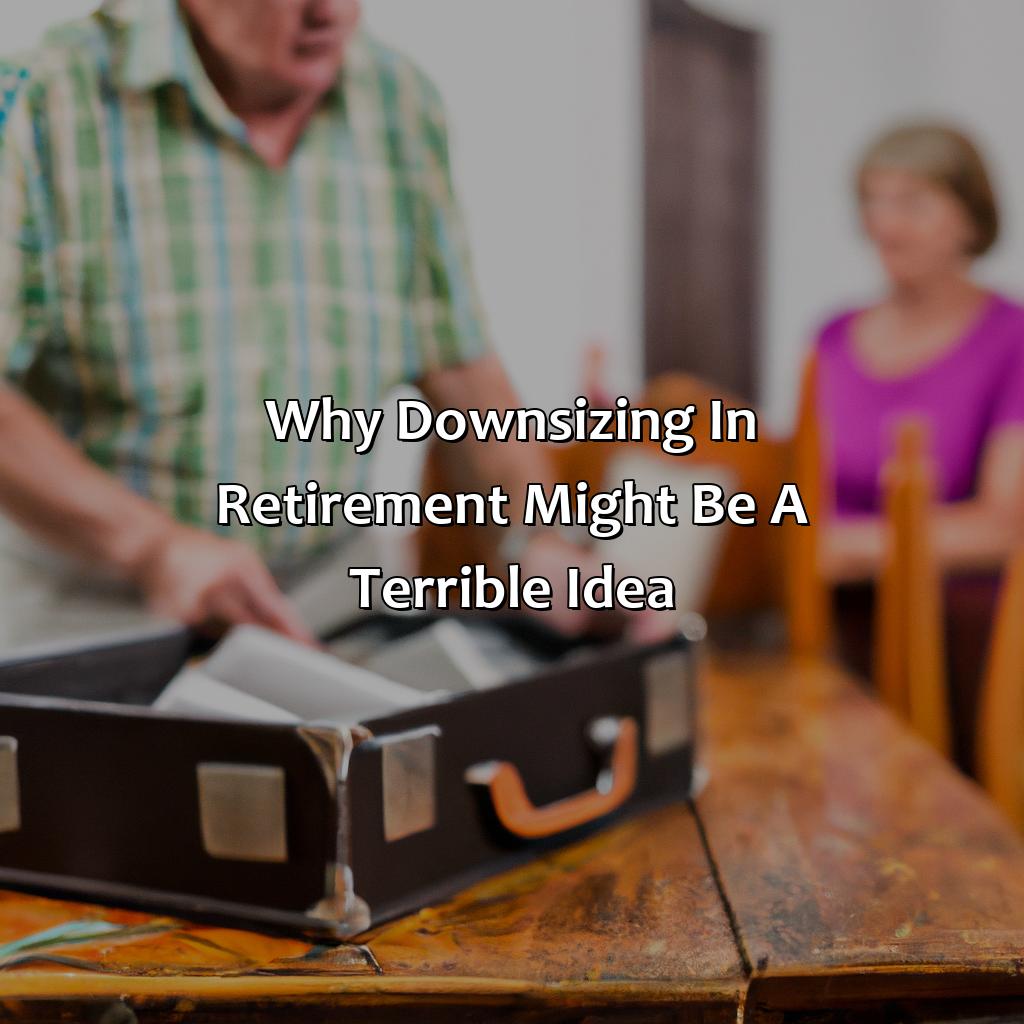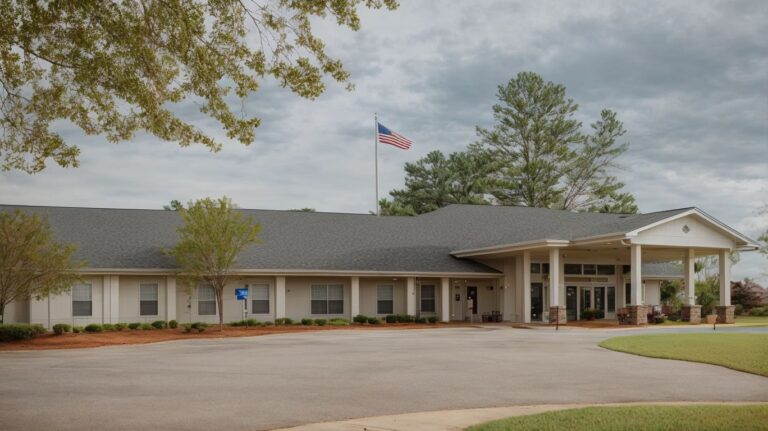Why Downsizing In Retirement Might Be A Terrible Idea?
Key Takeaways:
- Downsizing in retirement may not always be the best idea due to financial considerations such as the cost of moving and potential loss of home equity.
- Emotional factors such as loss of community, social networks, and physical limitations should also be taken into consideration when deciding whether to downsize in retirement.
- Alternatives to downsizing, such as renting out a part of the home and refinancing to reduce mortgage payments, should be evaluated to determine which is the best option for individual retirees.
Retiring in peace and comfort is everyone’s dream. But for many, the reality is far from that. With rising costs and declining savings, downsizing in retirement might seem like a good option – but is it really? You need to know the pros and cons before making this big decision.
Why downsizing in retirement might not be the best idea
Retirement Downsizing: Is it a Good Idea?
Retirees often consider downsizing as a way to reduce costs and simplify their lives. However, it may not be the best idea for everyone. Downsizing can result in a loss of important comforts and memories, and can also be emotionally and physically draining. This is especially true for those who have lived in their homes for a long time.
Moreover, downsizing in retirement can lead to missed opportunities for socializing and community engagement. Staying in one’s neighborhood can provide a sense of belonging and connection with neighbors, and may also offer access to familiar amenities. Moving to a new area can be isolating, and take time to develop new friendships and routines.
In addition, downsizing can mean giving up larger spaces that allow for hobbies, projects, and entertaining guests. A smaller home may not offer the same flexibility and creative freedom that retirees are used to, which can lead to a decrease in their overall well-being.
Therefore, before making any decisions about downsizing in retirement, it is important to consider all the pros and cons. Downsizing is not always the best option, and retirees should take the time to evaluate their own circumstances and priorities before making any major changes.

Image credits: retiregenz.com by Joel Woodhock
Financial Considerations
As individuals approach retirement, they often consider downsizing their homes. However, financial considerations must be made before making such a decision. It is essential to evaluate whether downsizing will result in lower monthly expenses, reduced property taxes, and maintenance costs.
Furthermore, individuals must assess if their net worth will increase or decrease with the sale of their property. Downsizing might not always result in financial benefits, and individuals must consider factors like location, proximity to amenities and their comfort level before deciding to sell their homes.
It is also crucial to factor in the emotional and psychological costs of downsizing. Selling a home where individuals have lived for a long time can be emotionally taxing, and the transition can be challenging. According to Forbes, retirees must weigh their options carefully and evaluate their financial position before deciding to downsize their homes. Research conducted by The Journal of Financial Planning discovered that downsizing can lead to mental and emotional stress, especially for couples.
It is imperative to analyze the financial implications of downsizing and evaluate other options like renting or refinancing the home before making any final decisions.

Image credits: retiregenz.com by James Duncun
Emotional Factors
As retirees plan to downsize their homes, they may overlook the emotional factors that come along with it. Adjusting to a smaller living space and the feeling of letting go of sentimental items can trigger emotional distress. Fighting these feelings can cause a downfall in the downsizing process.
It is challenging to separate emotions from objects we have collected over time, and it is important to acknowledge that. Consider making a list of the items you cannot live without and prioritize those. Embrace the idea of a new chapter in life and the benefits that come with downsizing.
Additionally, retirees may feel like they are losing their independence by leaving a home they have been living in for years. Consider seeking help from family, friends, or a therapist to process these feelings.
It’s essential to remember that downsizing should be a personal decision, and it is not recommended to be pressured into this transition. However, not downsizing could mean missing out on the benefits of low maintenance living and extra cash.

Image credits: retiregenz.com by David Woodhock
Alternatives to downsizing
As one approaches retirement, there are various options available to consider instead of downsizing one’s property. One possibility is to rent out a portion of the property such as a room or a separate dwelling. Another option is to use equity release schemes, which allow retirees to access the equity in their homes without having to sell. Additionally, some retirees may opt for a home exchange program, where they swap houses with another retiree in a different location. These alternatives can provide financial benefits without having to leave one’s cherished home.
It is also important to note that downsizing can come with emotional and social consequences, as it may mean leaving a familiar community and support network behind. Furthermore, the practicalities of moving can be overwhelming for some retirees. It is important to weigh all the options before making a decision.
In a similar vein, a couple in their 60s shared a story of how they decided against downsizing after considering all the factors. Instead, they opted to renovate their current home to make it more comfortable and accessible for their retirement years. This decision allowed them to stay in the place they had called home for decades while still enjoying their retirement without the added stress of moving.

Image credits: retiregenz.com by Yuval Duncun
Five Facts About Why Downsizing in Retirement Might be a Terrible Idea:
- ✅ Downsizing in retirement can lead to social isolation. (Source: AARP)
- ✅ Moving to a new location can result in higher living expenses. (Source: MarketWatch)
- ✅ Selling the family home can result in emotional distress and a loss of cherished memories. (Source: Forbes)
- ✅ Downsizing may not actually save as much money as people think. (Source: U.S. News & World Report)
- ✅ Moving in with family members can cause strain on relationships and a loss of independence. (Source: The Balance)
FAQs about Why Downsizing In Retirement Might Be A Terrible Idea?
Why downsizing in retirement might be a terrible idea?
Downsizing in retirement might seem like a good financial move, but it can have several negative consequences that you need to consider.
1. Will downsizing really save money?
While downsizing may reduce your mortgage payment or rent, it can also come with additional costs, including real estate fees, moving costs, and renovations to make your new space suitable for your needs. In addition, if you move into a retirement community or assisted living facility, you may have ongoing monthly fees that offset any savings from downsizing.
2. Will downsizing impact your quality of life?
Downsizing can mean giving up cherished possessions, leaving behind a community you are familiar with, and losing the comfort of a space that you have called home for many years. You may also have to adjust to a smaller space, which can be difficult if you have large furniture or hobbies that require space.
3. Can you adjust to a new location?
If you move to a new area, you may find it difficult to adjust to new surroundings, make new friends, and develop new routines. This can be especially challenging if you move far away from family and friends.
4. Will you be able to meet your changing needs?
As you age, your needs may change, and downsizing may not meet those needs. For example, you may need a larger space if a family member moves in, or you may need a space that is more accessible if you have mobility issues.
5. Will you be able to manage the emotional toll?
Downsizing can be emotionally challenging, especially if you are leaving behind a space filled with memories. You may also feel anxiety or stress about the logistics of the move and uncertainty about your future living situation.
6. Will downsizing impact your estate planning?
If you downsize, it can impact your estate planning. For example, if you move into a smaller space, you may need to get rid of furniture or other possessions that you had planned to pass down to your heirs. Downsizing can also affect your tax planning and retirement income planning, so it’s important to consider the long-term impact of downsizing on your financial goals.





